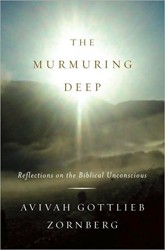Throughout the sweep of Jewish intellectual history, we have been blessed by many giants of Torah scholarship and leadership. Everyone can name his/her “top ten.” Yet, even among this illustrious group, only a handful of names have been elevated to a special place by history and universal acclaim. Moses known as Moshe Rabbenu, Moses our teacher, Rabbi Judah The Prince, known as Rebbe or Rabbenu HaKadosh, The Teacher par excellence or The Holy Teacher, Maimonides, known as Rabbenu Moshe (to distinguish him from Moses), Rabbi Elijah of Vilna known as “The” Gaon, The Brilliance, and Rabbi Joseph B. Soloveitchik (1903−1993), known with great affection and respect as ‘The Rov”*, The Rabbi/Teacher par excellence and sui generis of the 20th century.
Self-described as a melamed, a simple teacher, the Rov taught and shaped the thinking of the leadership of modern Orthodoxy in America. His influence and tutorial authority emerged from his regular Talmud classes at Yeshiva University, his weekly classes at Congregation Moriah in New York City, his Saturday evening sessions in Boston, his learned articles in print, and his many lectures to the Rabbinical Council of America as well as his public lectures at Yeshiva and elsewhere. His towering brilliance as a thinker, philosopher, halakhist, theologian, and fierce defender of Jewish tradition and classical teachings was felt by anyone in his presence, or by anyone who read any of his writings.
What is not generally known, or appreciated, is the Rov’s role behind the scenes as an international communal leader, advisor, and policy maker. These personal letters and interviews present us with another side of the Rov as he expressed himself in the areas of public policy, community issues, Jewish education, Orthodoxy, religious Zionism, inter-religious affairs, and his personal ruminations. Rabbi Soloveitchik had command of the entire corpus of Rabbinic literature. Not just the content, but the capacity to offer razor sharp analyses, conceptualizations, and categorizations. He had also mastered general and Jewish philosophy, which enabled him to think in sophisticated theological terms. His spoken language and writing style in any of several languages was pellucid, crisp, and filled with numerous references to the gamut of resources available to him.
The Rov wrote about foundlings, interfaith chapels on college campuses, humane slaughter, and Talmud study for girls. Even seemingly straightforward questions merited the weight of a full and rigorous Talmudic analysis and response. So, for example, when he was asked about drafting rabbis as chaplains, his answer runs to almost 40 pages. There are many instances when he staunchly defends the authority and status of the rabbinate. He offers this opinion as advice to his students on a wide range of communal issues, but also as a decisive factor in turning down the offer to become Chief Rabbi of Israel. His position vis-à-vis the Church and relations with non-Orthodox movements is also spelled out in a number of different letters. The Rov was unalterably opposed to empty ceremonialism in place of genuine Jewish observances and made this very clear on a number of occasions when he was asked about creating and/or including new prayers or ceremonies.
The Rov valued the cloistered experience of exclusive Talmudic study during one’s training for the rabbinate, but felt that rabbis in the field had to become involved in the community. He was opposed to those who withdrew into a sectarian society, explained traditional Judaism to contemporary society. “I have indomitable faith in the Halakhah as a Divine, eternal imperative and discipline, in its all-embracing philosophy, agility, facility, and applicability in different environments and cultures.”
He was very firm in his beliefs. He was disappointed in many aspects in the Chief Rabbinate of Israel, especially in that they have no connection to the institutions of religious education, and that politics is often insinuated into religious areas. Regarding politics, he felt strongly that those who do not live in Israel should not express opinions about Israel’s internal affairs.
Volumes have been printed containing the Rov’s lectures as well as his Talmud classes. However he was reluctant to comment publicly on many issues. Although he had ready access to adequate sources on the tip of his tongue, he preferred to think and to analyze before he spoke. This volume is the closest that exists so far of his definitive rulings and opinions on a wide range of subjects. He was consulted by rabbis, world leaders, government officials, students, and ordinary people. He answered everyone with civility and respect, even when he disagreed. Of special interest are his correspondences with Israeli officials, with the leaders of American secular Jewish organizations, and with Professor Saul Lieberman.
The world at large has recognized many geniuses. However, their genius is usually limited to one area of knowledge — mathematics, the sciences, medicine, literature, philosophy, Talmud, poetry, etc. Rarely has the world seen someone like Rabbi Soloveitchik who was the master of so many disciplines. It is unfortunate that he is known only to the cognoscenti of the Jewish intellectual world. This makes his passing so much more dramatic of a loss.
The Rov defined a “good” Jew as someone who is concerned with the future of Judaism and wants to ensure its survival for generations to come, and who identifies with the travails of his people. He embodied this in his life and his legacy endures.
*Although in modern Hebrew this is spelled and pronounced “Rav”, the more colloquial “Rov” is used since this is how generations of students referred to him.





